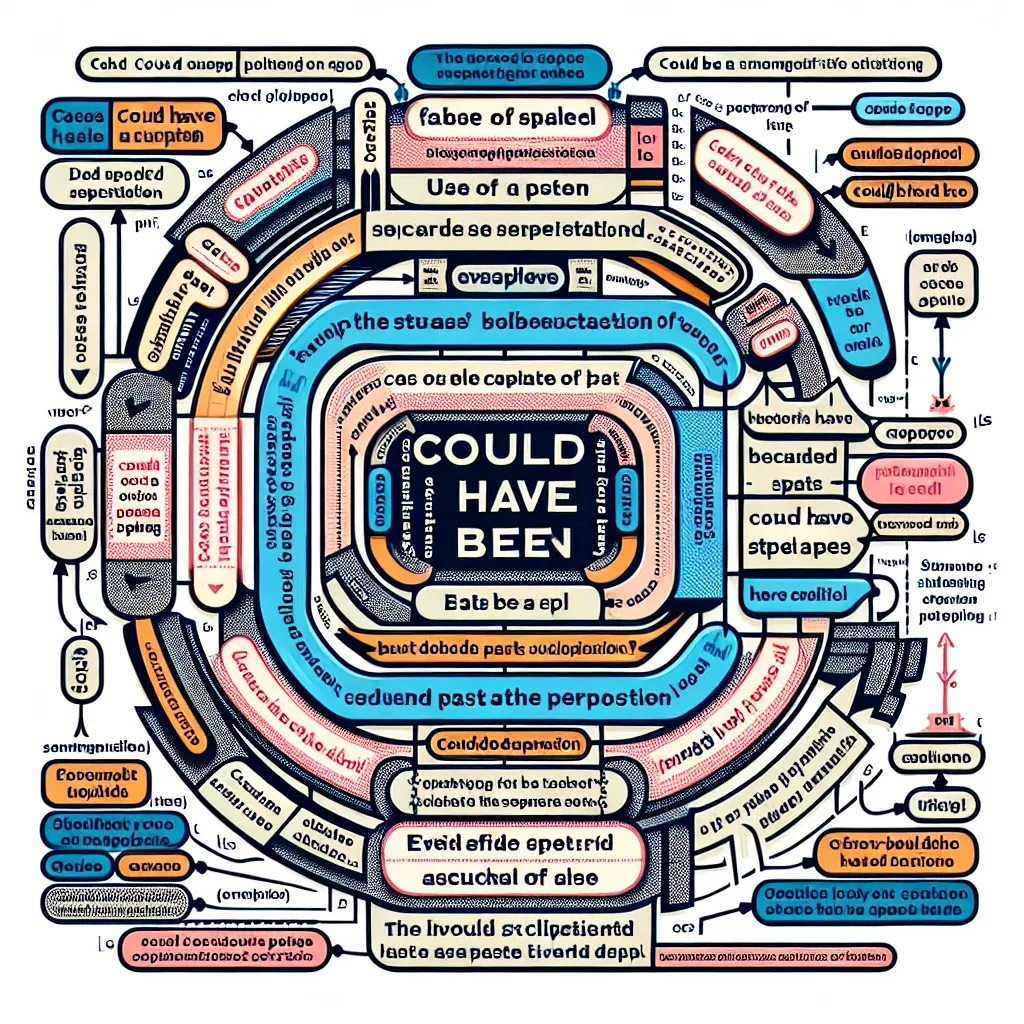“Could have been” is a powerful grammatical structure that allows you to speculate about past possibilities. In IELTS, mastering this construction can significantly enhance your ability to express complex ideas and hypothetical scenarios, particularly in the Speaking and Writing sections. Let’s explore how to effectively use “could have been” for past speculation and how it can boost your IELTS score.
Understanding “Could Have Been” in Context
The structure “could have been” is used to talk about possibilities in the past that didn’t happen. It’s a combination of the modal verb “could” (expressing possibility), “have” (auxiliary verb), and “been” (past participle of “be”). This structure is particularly useful in IELTS when you need to discuss hypothetical situations or express regret about past events.
Here are some examples to illustrate its use:
- “The concert could have been amazing if the singer hadn’t lost her voice.”
- “I could have been a doctor if I had studied harder in school.”
- “The project could have been completed on time if we had more resources.”
- “She could have been happier in her job if she had chosen a different career path.”
- “The accident could have been avoided if the driver had been more careful.”
In each of these sentences, we’re speculating about a past possibility that didn’t occur. This structure allows us to explore alternative outcomes and discuss “what if” scenarios.

Grammar Formula and Usage in IELTS
The basic formula for using “could have been” is:
Subject + could have been + past participle/adjective/noun
It’s crucial to remember that this structure is used for past possibilities, not present or future ones. In IELTS, you can use this structure in various ways:
IELTS Speaking
In the Speaking test, “could have been” can be used to:
-
Discuss hypothetical situations:
“If I had chosen a different career, I could have been a professional athlete.” -
Express regret:
“I could have been more prepared for the interview if I had practiced more.” -
Speculate about past events:
“The outcome of the election could have been different if more young people had voted.”
IELTS Writing
In Writing Task 2, “could have been” can help you:
-
Analyze causes and effects:
“The environmental damage could have been less severe if stricter regulations had been implemented earlier.” -
Discuss alternative solutions:
“The traffic congestion could have been reduced if the city had invested more in public transportation.” -
Evaluate past decisions:
“The economic crisis could have been mitigated if the government had acted more swiftly.”
Sample Passages Using “Could Have Been”
Let’s look at how “could have been” can be incorporated into longer passages for IELTS Writing Task 2:
Topic: The Impact of Technology on Education
“While technology has undoubtedly revolutionized education, its implementation could have been more effective if educators had received proper training. Many schools rushed to adopt new technologies without considering how they could have been integrated seamlessly into existing curricula. As a result, the potential benefits of these tools could have been fully realized if a more strategic approach had been taken. For instance, interactive whiteboards could have been used more effectively to engage students if teachers had been taught innovative teaching methods. Similarly, online learning platforms could have been more successful in promoting self-directed learning if students had been given better guidance on how to use them effectively.”
In this passage, “could have been” is used multiple times to speculate about alternative outcomes and missed opportunities in the implementation of technology in education.
Achieving Higher Band Scores with “Could Have Been”
To achieve higher band scores in IELTS, it’s not just about using “could have been” correctly, but using it effectively and in context. Here’s how you can use this structure to target different band scores:
Band 6-6.5:
Correct usage of “could have been” in simple contexts:
“The party could have been more fun if more people had come.”
Band 7-7.5:
More complex usage, combined with other structures:
“Had the government implemented stricter regulations, the financial crisis could have been averted, potentially saving millions of jobs.”
Band 8-9:
Sophisticated use of “could have been” in complex sentences, showing nuanced understanding:
“While it’s tempting to speculate that the war could have been prevented through diplomacy, the reality is that the deep-seated historical tensions and economic disparities could have been too entrenched to overcome without conflict, even if negotiations had been more protracted.”
Common Mistakes to Avoid
When using “could have been”, be careful to avoid these common errors:
-
Using it for present or future speculation:
Incorrect: “The weather could have been better tomorrow.”
Correct: “The weather could be better tomorrow.” -
Confusing it with “could be”:
Incorrect: “He could have been at home now.”
Correct: “He could be at home now.” (for present speculation) -
Forgetting to use the past participle:
Incorrect: “She could have been go to the party.”
Correct: “She could have gone to the party.” -
Using it with stative verbs:
Incorrect: “I could have been known the answer.”
Correct: “I could have known the answer.” -
Overusing it:
While “could have been” is useful, overusing it can make your speech or writing sound repetitive. Vary your language with other structures for speculation and hypothesis.
Conclusion
Mastering the use of “could have been” for past speculation can significantly enhance your IELTS performance. It allows you to express complex ideas about past possibilities, which is particularly valuable in the Speaking and Writing sections. Remember to practice using this structure in various contexts, and always consider how it fits into the broader argument or discussion you’re presenting. By incorporating “could have been” effectively, you’ll demonstrate a sophisticated command of English grammar, helping you achieve a higher band score in your IELTS exam.
To further improve your skills, try creating your own sentences and paragraphs using “could have been”. Practice speculating about historical events, personal experiences, or global issues. The more you use this structure, the more natural and effective your English expression will become.